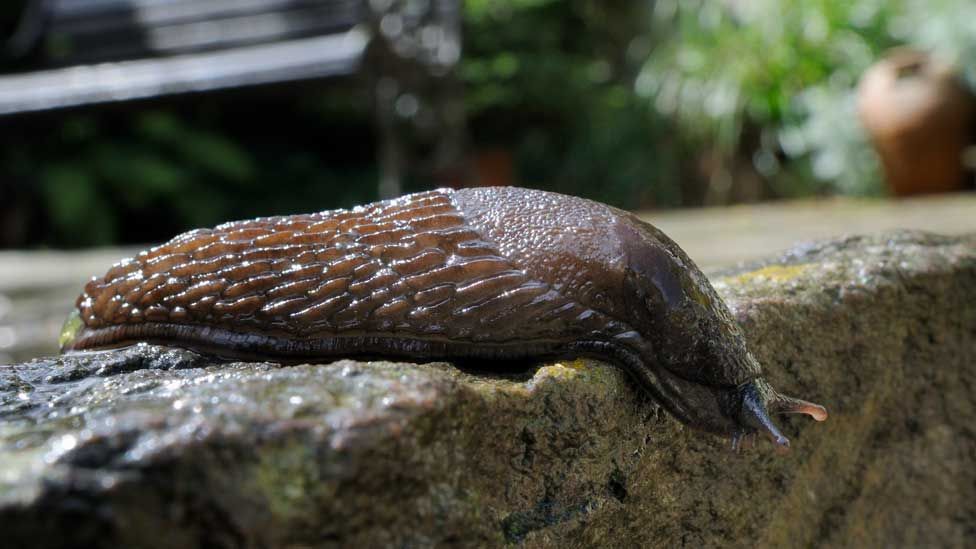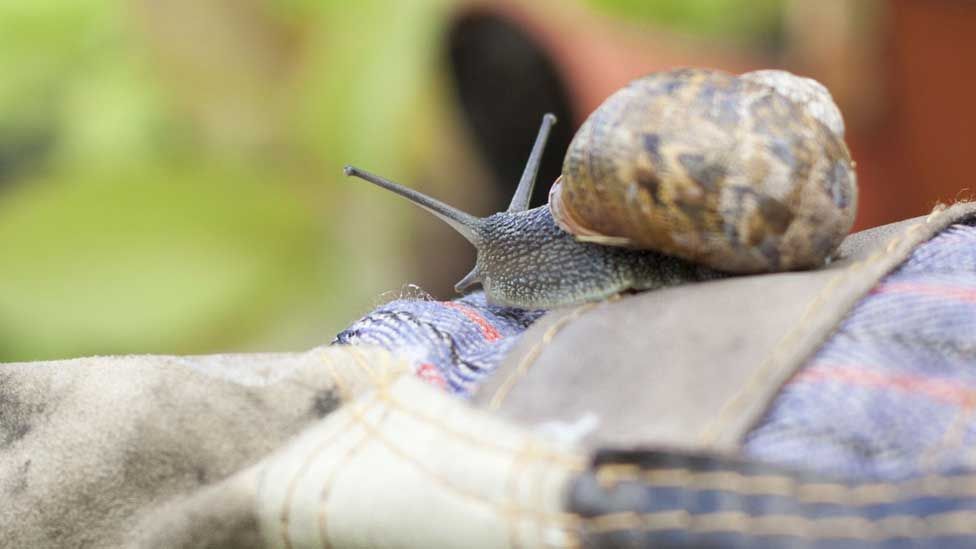A campaign to give slugs and snails an “image makeover” wants gardeners to reconsider the role of the much-maligned creatures.
The Herts and Middlesex Wildlife Trust and Royal Horticultural Society (RHS) want to challenge negative perceptions.
Making Friends with Molluscs would “arm people with facts”, organisers said, and show how they contribute to ecosystems in a positive way.
They are “nature’s clean-up crew”, the trust said.
Campaign organisers hope that by learning to “appreciate and co-exist” with snails and slugs, gardeners can adopt a more environmentally friendly approach.
Only a small fraction of about 150 species of molluscs in the UK pose problems for gardeners, with the majority contributing positively to the ecosystem, the trust said.
They feed on rotting plants, fungi and dung – and help recycle nitrogen, nutrients and minerals back into the soil.
 IMAGE SOURCE,NICK UPTON/2020VISION
IMAGE SOURCE,NICK UPTON/2020VISIONCreatures such as frogs, thrushes, and ground beetles, rely on them for food and they are also part of a hedgehog’s diet.
Therefore by supporting molluscs, an array of wildlife is indirectly supported, the trust said.
The trust, with the RHS, has produced a guide with tips to “live harmoniously alongside slugs and snails”.
These include creating habitats which may make them less likely to venture into vegetable beds and choosing plants less attractive to them or are more resilient to their feeding habits, such as lavender and hydrangeas.
It also suggests implementing barriers, such as copper tape and wool pellets, to help protect vulnerable plants.
 IMAGE SOURCE,TOM MARSHALL
IMAGE SOURCE,TOM MARSHALLHeidi Mansell, from the trust, said the molluscs made “a valuable contribution to the ecosystem” but were “often viewed as garden pests”.
“It’s true they don’t have the appeal of some of our better-loved garden visitors… but they are an important food source for these species and others,” she said.
“Plus, let’s credit them with the positive assistance that they give to gardeners; helping to clean up decay and enriching the soil – what’s not to love.
“By arming people with educational facts about these lesser-known creatures, together with practical tips and advice for gardeners, we can give slugs and snails an image makeover.
“Let’s embrace these slimy and shelled garden pals, rather than trying to rid our gardens of them with pesticides, which can cause harm to other wildlife too.”
